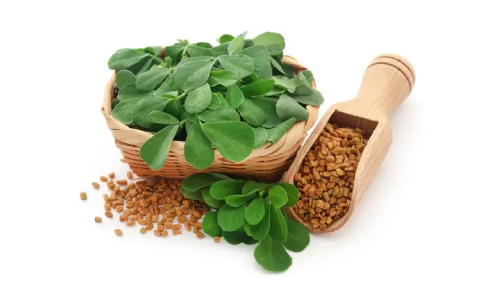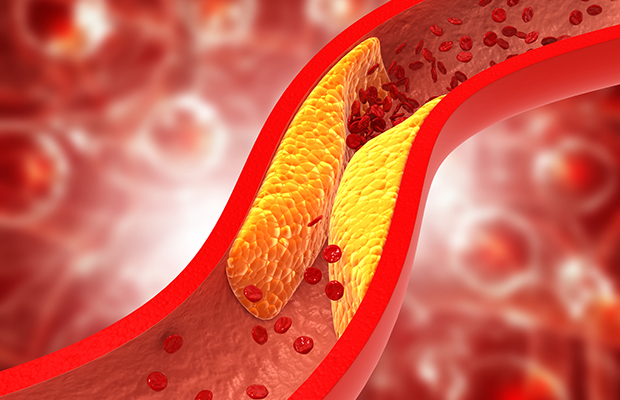Ayurveda offers a treasure trove of remedies sourced from nature’s bounty. Among these botanical marvels stands Methi, commonly known as fenugreek, a humble herb that transcends its culinary applications to unveil various therapeutic properties. Historically, Methi has been cherished by Ayurvedic practitioners for its versatile benefits. It has been used in various traditional medicine systems around the world, proving its worth beyond just a kitchen ingredient. In this blog, let us delve into Methi’s therapeutic potential. Properties and Uses in Ayurveda References to Methi can be found in ancient Ayurvedic texts such as the Charaka Samhita and Sushruta Samhita. The texts emphasize the ability of the herb to balance bodily Doshas (energetic forces). They also highlight its benefits in promoting digestion and alleviating various ailments. Throughout history, Methi seeds, leaves and extracts have been used in traditional Ayurvedic formulations and as remedies. In Ayurveda, It is used to treat asthma, bronchitis, arthritis, digestive issues, skin disorders, male infertility issues, hormone disorders, type 2 diabetes, etc. Properties of Methi Methi, or Fenugreek, possesses distinct qualities according to Ayurveda that contribute to its therapeutic properties: Taste (Rasa) It is characterized by a bitter taste (Tikta Rasa), which is balanced by a slightly sweet aftertaste (Madhura Rasa). This combination of tastes contributes to its overall balancing effect on the body. Energy (Virya) People consider methi to have a heating potency (ushna virya) in terms of energy. Believers think that this warmth stimulates digestion and metabolism, benefiting certain digestive imbalances. Potency (Vipaka) Methi has a pungent post-digestive effect (Katu Vipaka), which means it transforms the digestive process and contributes to its overall therapeutic effects. Dosha Balancing Properties of Methi According to Ayurveda, Methi surprisingly exhibits properties that help balance all three Doshas: Vata Dosha Methi’s warming and grounding qualities help pacify Vata Dosha. It can help alleviate symptoms of excess Vata, such as dryness, coldness and nervousness. Pitta Dosha While Methi has a heating potency, its bitter taste helps cool and balance excess Pitta Dosha. It can soothe inflammation and support liver health, which are common concerns related to Pitta imbalance. Kapha Dosha Despite its heating energy, It’s bitter taste and pungent post-digestive effect help balance Kapha Dosha. It helps alleviate symptoms of excess Kapha, such as congestion, sluggishness and heaviness. Medicinal Uses In Ayurveda, It is highly versatile and is effective for the treatment of various ailments and imbalances. It improves the digestive fire (Agni), alleviates indigestion, and soothes gastrointestinal distress during digestion. It can also modulate blood sugar levels and lend hope to those grappling with diabetes, offering a natural adjunct to conventional therapies. Its expectorant and bronchodilator properties also relieve respiratory congestion and promote clear breathing. It also promotes healthy skin and hair, and supports female reproductive health, offering benefits during menstruation and lactation. Remedies Using Methi It serves as an excellent remedy for a variety of health conditions. Cholesterol Having powdered methi seeds with warm water or buttermilk helps reduce cholesterol levels. Diabetes Drinking water mixed with a combination of powdered methi seeds and turmeric helps keep your blood sugars under control for Type 2 diabetes. Digestive Issues Consuming a fine paste made of methi seeds soaked in water overnight as it is or combines in water helps relieve digestive problems, such as hyperacidity and gastritis. Gut Health Make a tea with fried methi seeds cooked in milk to boost your Agni and strengthen your intestines. Constipation Boil methi seeds in a cup of water to make a herbal tea. Have it when lukewarm along with half a spoon of ghee to relieve constipation and hemorrhoids. Lactation Have milk cooked with methi seeds soaked overnight to improve breast milk production in lactating mothers. Hairfall You can make a paste made of methi seeds soaked overnight and use it as a hair mask to prevent hairfall and boost hair growth. Even though It is an excellent remedy for different issues, it can have some mild side effects. That’s why you must avoid it if you have any bleeding disorders or diarrhea. Remember, one man’s medicine can be another man’s poison. Therefore, it’s best to seek the guidance of an Ayurvedic doctor before you choose to use it as a remedy. As we continue to explore the potential of natural remedies, Methi remains a shining example of the magical herbs that Ayurveda has to offer. Also read: Cholesterol Managing with Ayurveda If you are struggling with any health issues, you can either book a consultation with us or send us a message via WhatsApp to +91 79074 89839. We have the best Ayurvedic doctors in Trivandrum who are always glad to help you. If you have any queries, contact us. You can also visit us at our hospital.
Methi (Fenugreek) Uses in Ayurveda

